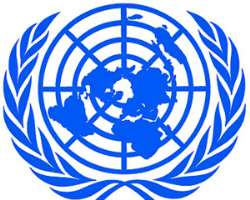Gabon: UN expert urges action to tackle trafficking of children from West and Central Africa

GENEVA, Switzerland, May 24, 2012/African Press Organization (APO)/ -- The United Nations Special Rapporteur on trafficking in persons, especially women and children, Joy Ngozi Ezeilo, urged the republic of Gabon to adopt urgent measures to tackle trafficking in children from West and Central Africa into the country, including traditional and cultural factors that exacerbate this phenomenon. “I am confident that Gabon can become a model for other countries in the region and beyond in the fight against trafficking,” she stressed.
“Although the Government has adopted legislation to combat human trafficking, significant gaps remain,” Ms. Ezeilo said* at the end of her official visit to Gabon from 14 to 18 May. “There are a number of challenges that must be addressed by the Government if it is to succeed in effectively combating trafficking in persons and protecting the human rights of trafficked victims of all ages.”
The rights expert underscored that current laws limit protection to victims under the age of 18 and do not provide for all forms of exploitation including labour and sexual exploitations, slavery and removal of organs. “I urge the Government to expand the scope of trafficking, to explicitly widen the forms and scope of protection to both trafficked women and men as per the Palermo Protocol, aimed at preventing, suppressing and punishing trafficking in persons.”
Gabon is a destination and transit country for trafficked persons from the sub-region of West and Central Africa. Boys and girls below the age of 18 predominantly from Benin, Mali and Togo are attracted to coming in the country, which is seen as one of the wealthy economies in the region, with prospects and opportunities for work.
“Most common forms of trafficking in Gabon are domestic work for young girls, servitude, and to some extent forced and early marriage; while for boys, work in the informal sector including auto mechanics and hard labour are common,” she said while noting that root causes of trafficking, include poverty and traditional practices, especially in West Africa, of sending children to live with relatives and demand for domestic workers by rich Gabonese families.
“The trend, forms and manifestation of trafficking in persons are not well-understood in Gabon, and there is a general lack of awareness and knowledge of trafficking in persons beyond child trafficking for exploitative labour,” Ms. Ezeilo stressed. “As a result, other victims of trafficking remain invisible and unrecognized by not only the general population, but also the victims themselves and the competent authorities.”
The human rights expert called on the authorities to help improve the understanding of the nature and scale of the problem of trafficking in persons in the country, through the collection of reliable national data to determine the prevalence rate, forms, trends and manifestation of human trafficking, including of children and women.
“With a coastal border of more than 800kms and a porous border with 3 countries, Gabon requires good cooperation with its neighbours to fight the phenomenon of trafficking,” she said, stressing that so far the signing of agreements with neighbouring states have not materialised in spite of initiative of the government.
The Special Rapporteur also expressed her concern about the absence of a specific visa program to enable victims of trafficking to remain legally in the country, as well as for the safe return and repatriation of victims of trafficking. In her view, there is always a risk of re-trafficking and re-victimisation, especially for trafficked children because family members are implicated in the exploitation of victims of trafficking.
During her five-day mission to Libreville, Ms. Ezeilo met with government officials from the Ministries of Foreign Affairs, Justice, Labour, Social Affairs and Family, Interior and Defence. She also met with the Public prosecution, the Police's service for protection of minors, the monitoring committee in charge of implementing the platform of action on trafficking of children for the purpose of labour exploitation, the National Commission for Human Rights and civil society organisations.
“More importantly,” she stressed, “I met with victims themselves, including foreign girls during my visits to the government run Angondjé Shelter and two other shelters for girls and boys run by civil society organizations.”
Ms. Ezeilo will present a comprehensive report containing her conclusions and recommendations at the 23rd session of the UN Human Rights Council in June 2013.
(*) Check the full end-of-mission statement: http://www.ohchr.org/EN/NewsEvents/Pages/DisplayNews.aspx?NewsID=12176&LangID=E
